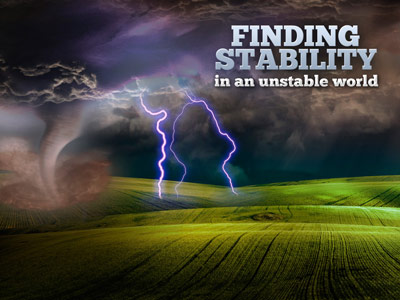-
Election Equals Affection Series
Contributed by Ken Mckinley on Mar 8, 2009 (message contributor)
Summary: A look at the Biblical teaching on Election and how this doctrine shows us the love of God in Christ.
Election = Affection
Text: Ephesians 1:3-4
By: Ken McKinley
(Read Text)
Now last time I gave you all some homework. I told you all to take some time and read all the passages in the New Testament that speak of what we have in Christ Jesus. If you did that, I bet you found quite a few of those blessings we have in Christ right here in the book of Ephesians. In verse 18 of this first chapter Paul actually tells his readers that he was praying so that they might know the hope to which they have been called to, that they might know the riches of their glorious inheritance in the saints, and Gods incredible power for those who are His.
Here’s some trivia for you. Ephesians chapter 1:3-14 is the longest sentence in the New Testament. It begins with the word “Blessed” (or “praise” if you have an NIV), and from that word onward the sentence just gets better and better. But what happens so often when we read this sentence we go through it so fast that we don’t take the time to reflect on what it says, and what it means. It’s kind of like that movie “Vacation” where Chevy Chase plays Clark Griswald and he takes his family on vacation across the United States, and they stop at the Grand Canyon. The problem is that Chevy Chases character has just committed a crime in a truck stop, and as his family is taking in the awesome view of the Grand Canyon he rushes out of the truck stop and tries to urge them on so that he isn’t caught. His wife protests his prodding, so he stands there for about 3 or 4 seconds and then says, “Its beautiful isn’t it? Ok… Let’s go!” and he loads his family up and drives away.
Lucky for you all, I’m not Clark Griswald (though my wife might disagree). But instead of just glancing at this sentence and passing over it quickly, instead we are going to take the time to dissect it and let the beauty of it soak in. So lets take a look at our text once more (read vs. 3 and 4).
Paul begins with the word “Blessed,” and again the NIV uses the word “Praise.” In the context, either word can be used. Paul begins this sentence with a word of thanksgiving. He says bless God, or praise God, or thank God, why? Because He first blessed us. That’s one of the things I love about God. He’s always taking the initiative. We love Him because He first loved us; we bless Him because He first blessed us, and verse 4 even tells us that God chose us in Christ before the foundations of the world so that we should be holy and blameless. And again notice that it’s in Christ. All that God has done for us is in Christ. In Him the promises of God are yes and amen (yes and so be it).
As Christ has become our representative, we are now the recipients of all the Father gives to the Son. In other words, all the blessings and all the benefits God has promised us are ours only because Jesus has secured them for us.
Isn’t it amazing that all of that is found in just that little section of Scripture? But people usually don’t see that, instead people tend to get hung up on verse 4 where it says God chose us before the foundation of the world. If you ever want to a Christian gathering go from a civil, friendly, joy filled meeting, bring up the question of predestination or election.
That word chose is the Greek word “ecloghy” which is where we get our word “election.” And it is a Biblical principle. Israel is a classic proof of God’s sovereign election, Deuteronomy 7:6-7 describes to us Israel’s relationship with God and how that relationship came about. John records Jesus speaking of God’s sovereign action in our salvation in John chapter 6:37, 44 and in chapter 17:2-24. Paul writes quite a bit about this doctrine in Romans chapter 8:28-33, chapter 9:11, chapter 11:5, 1st Thessalonians 1:4, 2nd Thessalonians 2:13-14, and Peter refers to it in 1st Peter 1:1-2, chapter 2:9 and in 2nd Peter 1:10. It’s in the Bible but it is a teaching that is debated over and over again. There are 3 views of election. The first view goes something like this: God’s grace only goes so far as to reveal Himself to humanity, the rest is up to mankind to make the decision either for or against salvation and God. My problem with this view is that it limits God, it makes Him wish for your success but He is bound by mans free will and the devils influences on man as well. Ultimately this view makes mans will the ultimate source of salvation, and does not secure salvation for anyone. After all, if we can accept it by our own choice, we can later reject it by our own choice. This view does away with the teaching of our utter sinfulness, God’s grace, and the teaching of redemption.

 Sermon Central
Sermon Central



